Can Cats Eat Corn Flakes? The Ultimate Guide
As devoted cat owners and enthusiasts, we constantly strive to understand our feline friends’ dietary needs and ensure their health and happiness. One question that frequently pops up is – “Can cats eat cornflakes?“
This question might seem peculiar, but it is valid given our pets’ curious nature and knack for sneaking into our breakfast bowls.
In this comprehensive guide, we will study cornflakes and cats and related questions like the effects of cornflakes on cats. So let’s get started.
What Are Cornflakes?
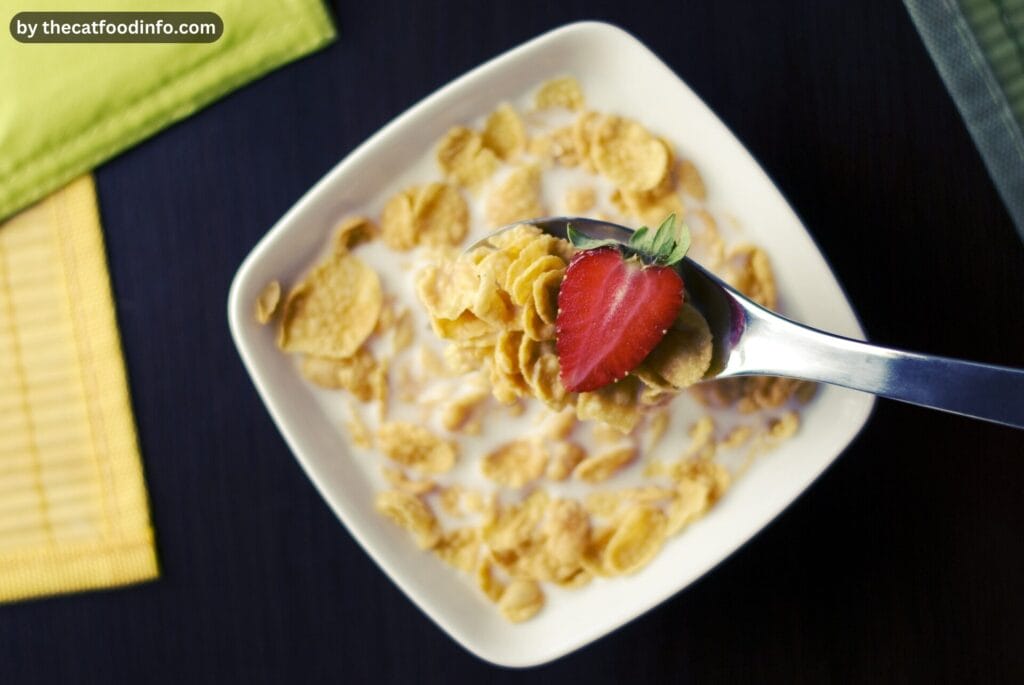
Cornflakes are a typical breakfast cereal, popular in many households across the globe. They are typically made from milled corn, sugar, and a pinch of salt. Often fortified with vitamins and iron, cornflakes are marketed as a healthy breakfast option.
However, it’s important to note that cornflakes are processed food developed primarily for human consumption, which makes us question their suitability for our feline companions.
Do Cats Like Corn Flakes?
As a species, cats have diverse tastes, and their preferences can often vary from one individual to another. While some cats might show interest in cornflakes, that is typically more due to curiosity and their love for exploring new things rather than an inherent liking for cornflakes.
As a high-protein, meat-based diet fulfills obligate carnivores, cats’ dietary needs. While they have been known to enjoy plant-based foods occasionally, it doesn’t mean they suit them.
In summary, while some cats might appear to like cornflakes, it’s not a food that aligns with their dietary needs.
Can Cats Eat Corn Flakes?
While it’s not harmful for cats to occasionally have a small amount of cornflakes, they should not be a regular part of their diet. Cornflakes, as previously mentioned, are processed food designed for humans, often containing sugar and salt, which are unsuitable for cats.
They are also low in nutritional value for cats as they lack the much-needed proteins and essential nutrients in a carnivorous diet. Over time, regular consumption of cornflakes could lead to obesity, diabetes, or other dietary issues in cats.
So, while your feline friend may safely nibble on a flake or two, making cornflakes a regular part of your cat’s diet is not advisable.
Is Corn Toxic To Cats?
The simple answer to this question is no; corn is not toxic to cats. However, this does not mean it’s healthy or beneficial for them. Cats are obligate carnivores, which means their bodies are designed to process meat and derive nutrients primarily from animal-based sources.
Why Isn’t Corn Ideal for Cats?
While corn is not toxic, it’s not the ideal food for cats due to its high carbohydrate content. Cats lack the specific enzymes needed to break down complex carbohydrates effectively, leading to undigested food passing through the gastrointestinal tract. This can result in gastrointestinal upset, including diarrhea and gas.
What About Allergies?
Another factor to consider is potential allergies. Some cats can be allergic to corn or other grains, causing reactions that may include skin irritation, gastrointestinal upset, or respiratory issues. If your cat shows any adverse symptoms after consuming corn, you should consult a vet immediately.
Concerns with Processed Corn Products
Corn in processed foods like cornflakes is a different matter entirely. Processed corn products often contain added sugars, salts, and unhealthy cat preservatives.
Corn as a Filler in Cat Food
Furthermore, corn is often used as a cheap filler in lower-quality commercial cat foods, which can be misleading. While these foods may claim to be nutritionally complete, they often lack the vital proteins and nutrients that cats need for optimal health.
Summary
In conclusion, corn is not toxic to cats but is not an ideal food choice due to their specific dietary requirements. Sticking to a high-quality, meat-based diet for your feline friend is best. Consult a professional veterinarian if you have concerns about your cat’s diet.
What Are The Benefits Of Cornflakes To Cats?
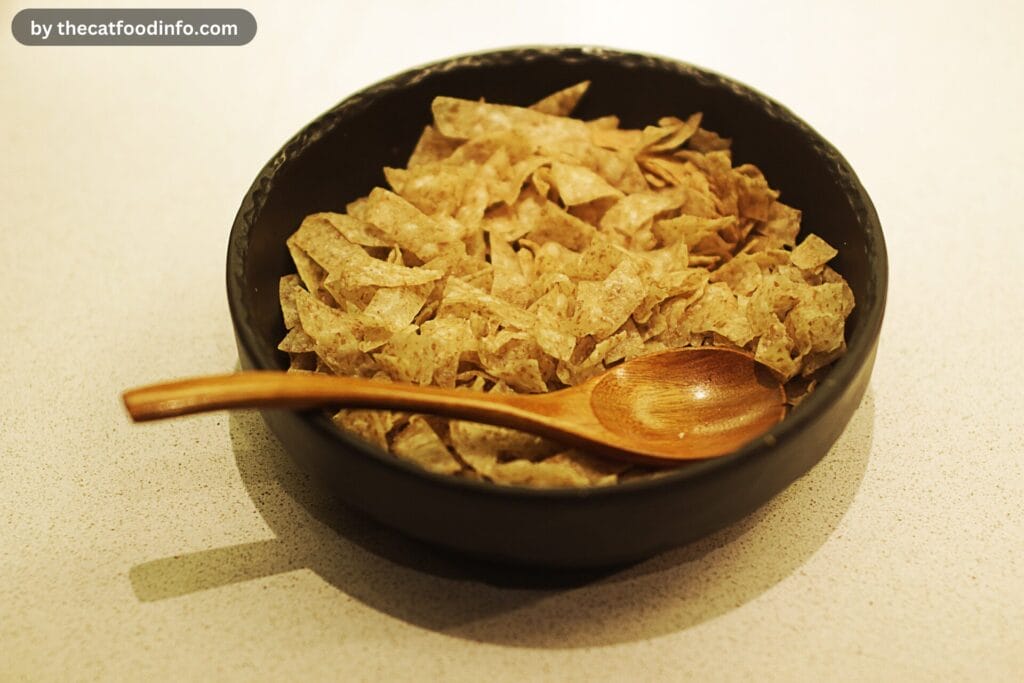
While cornflakes are not ideal for a cat’s regular diet, they have some benefits if consumed in tiny amounts and infrequently.
Non-Toxic
Firstly, cornflakes are non-toxic to cats, meaning that if your cat nibbles on a few flakes, it is not likely to cause any immediate harm.
Occasional Treat
Cornflakes can serve as an occasional treat for your cat, especially if they show interest in them. Some cats enjoy the crunch of cornflakes and may find them a novel and exciting texture to explore.
Enriched with Vitamins and Minerals
Cornflakes are typically fortified with vitamins and minerals like iron. However, it’s important to remember that cats can’t efficiently absorb these nutrients from plant-based sources. They are better equipped to obtain these nutrients from meat-based foods.
Feeding Cats Cornflakes: A Step-by-Step Guide
Should you decide to give your cat a small number of cornflakes as an occasional treat, here’s a step-by-step guide to doing so safely:
Choose the Right Cornflakes
Select plain cornflakes without added sugar, salt, or flavorings. These additives can be harmful to cats.
Serve in Moderation
Offer only a tiny amount of cornflakes. Remember, this should be an occasional treat, not a regular part of their diet.
Monitor Your Cat
Keep a close eye on your cat after they’ve consumed the cornflakes. Contact your veterinarian immediately if they show any signs of discomfort, gastrointestinal upset, or allergic reactions.
Consult a Vet
Always consult with your veterinarian before introducing new foods, including cornflakes, into your cat’s diet.
While cats can eat cornflakes, they offer little nutritional value to our feline friends. Sticking to cat-specific foods that cater to their unique dietary needs is always better. If you choose to provide cornflakes, do so sparingly and under the guidance of a professional vet.
Is Corn In Cat Food Bad?
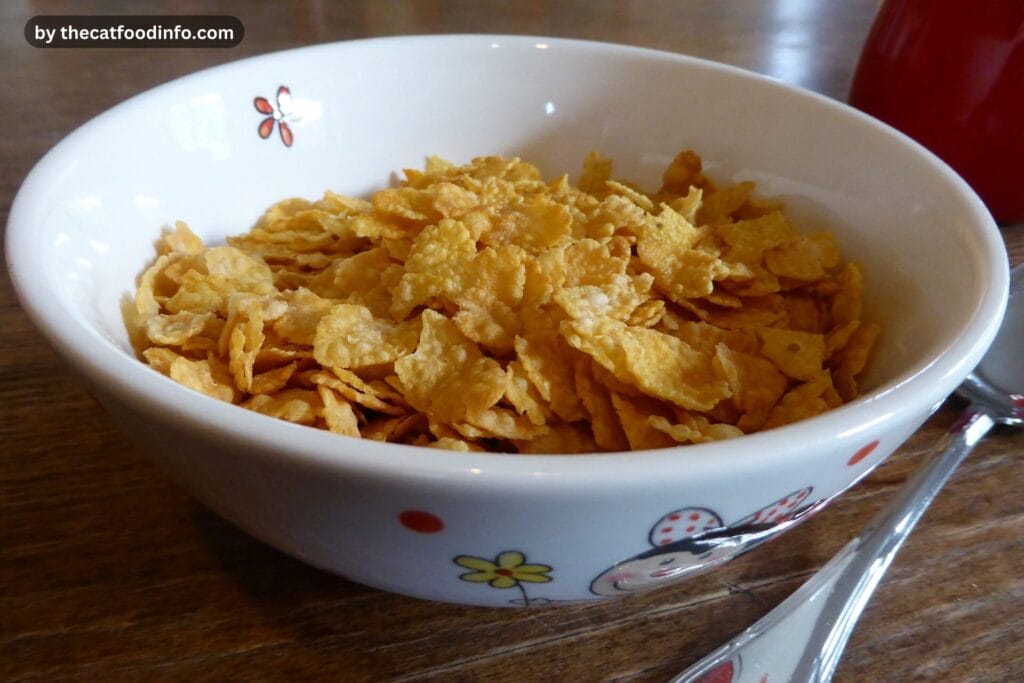
Corn in cat food is a controversial topic. Some argue that it is a cheap way for pet food manufacturers to bulk up the food while providing few nutritional benefits for cats. Cats require protein from meat for their dietary needs as obligate carnivores, and corn does not provide this essential nutrient.
Instead, corn is a carbohydrate, and too much carbohydrates can lead to obesity and other cat health problems. It’s also worth noting that some cats may be allergic to corn, and, for these individuals, consumption can lead to skin irritations, gastrointestinal distress, and other symptoms.
Therefore, choosing quality cat food with high meat content is generally better and leaves out grain-based fillers like corn.
How Many Cornflakes Can I Feed My Cat?
As a general rule, limiting the cornflakes your cat consumes is recommended. A couple of flakes as an occasional treat is usually seen as harmless. Treats should comprise 10% of your cat’s daily caloric intake.
However, this is a general guideline, and individual cats will have unique dietary needs. Always consult your vet before introducing new foods into your cat’s diet. Cornflakes should never replace a balanced, meat-based diet essential for your cat’s health.
Conclusion
In conclusion, cornflakes are not harmful to cats and can be given as an occasional treat, but they should not form a substantial part of a cat’s diet due to their high carbohydrate content and lack of essential nutrients.
Always remember that cats are obligate carnivores and require a diet of animal proteins for optimal health. Though cornflakes may provide a moment of novelty and enjoyment for your feline friend, they should be served sparingly and under the guidance of a professional vet.
The ideal diet for your cat should be high in quality animal proteins, low in carbohydrates, and free from grain-based fillers like corn. It’s always recommended to consult a vet before introducing new food into your cat’s diet.
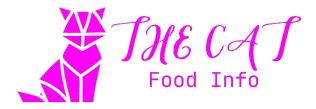
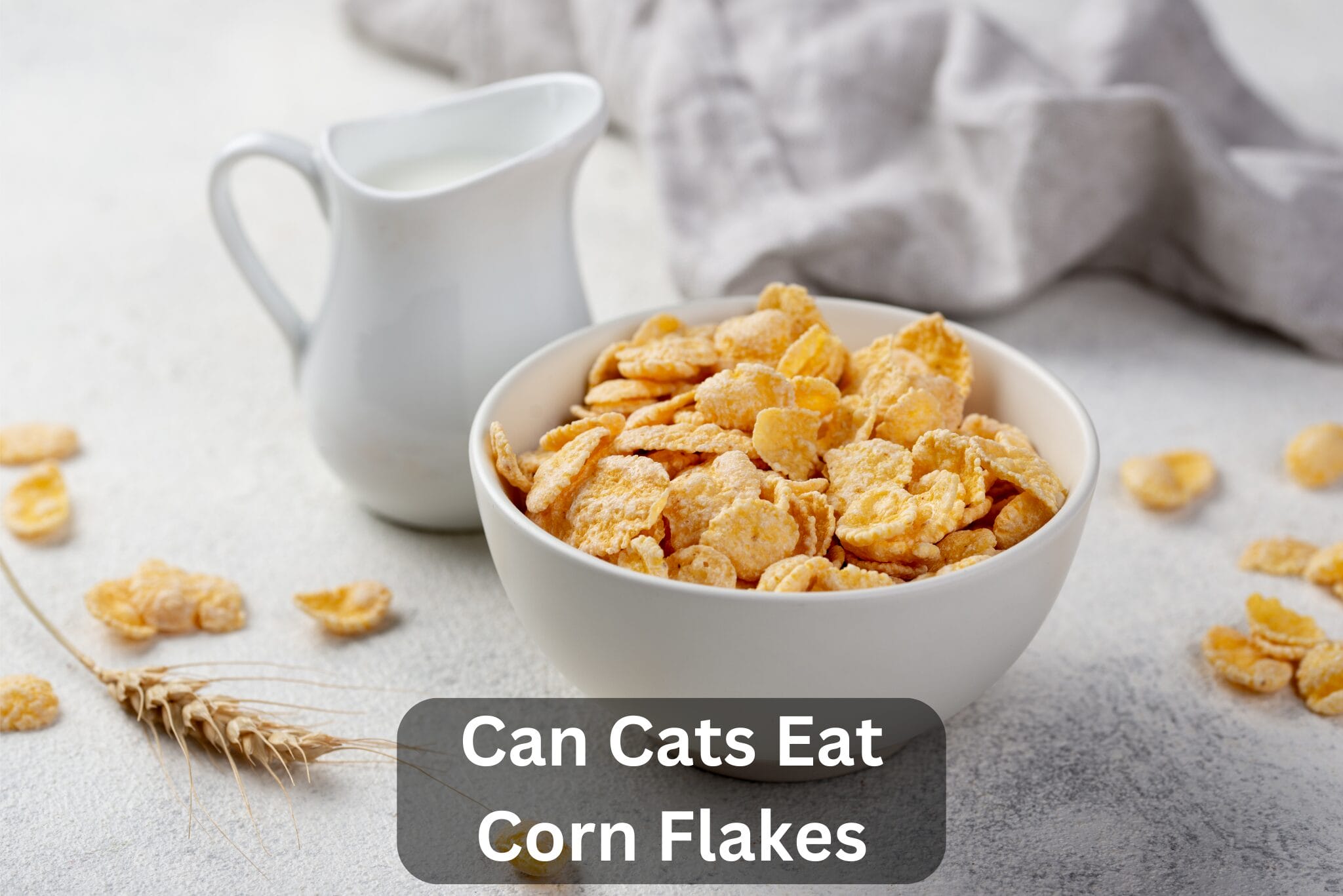
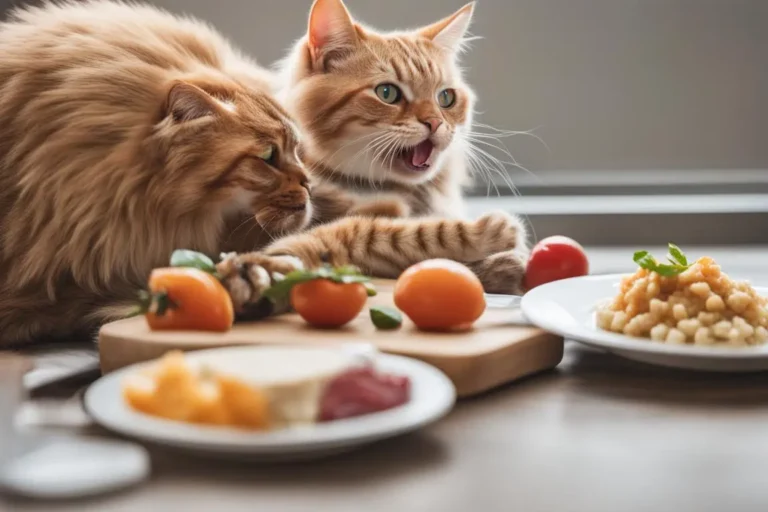
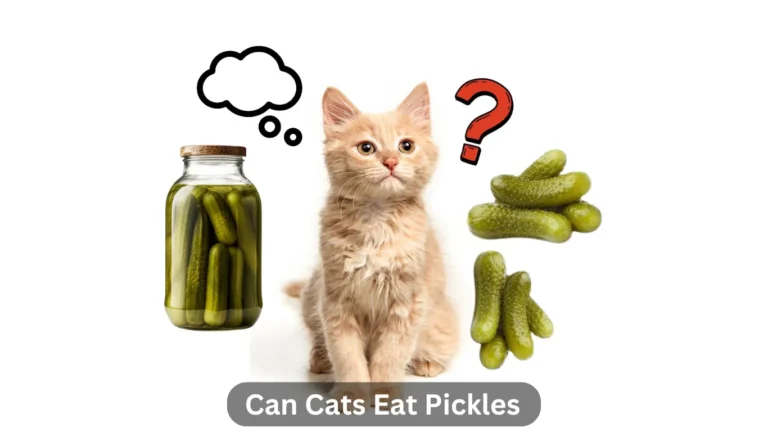
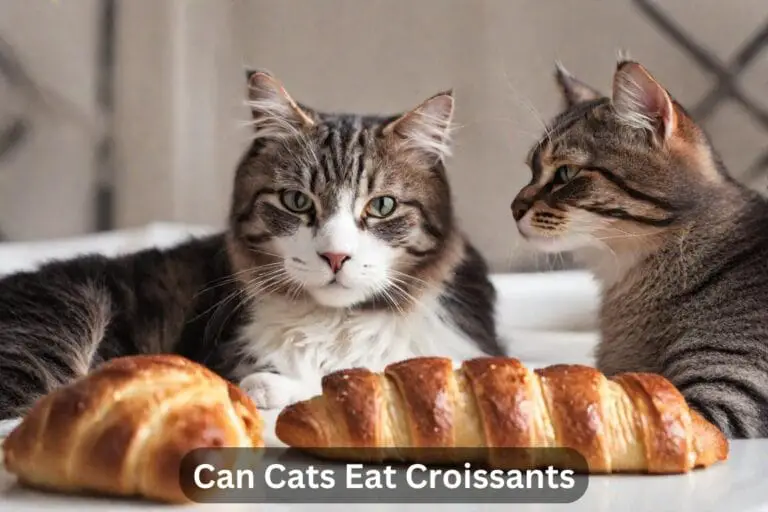
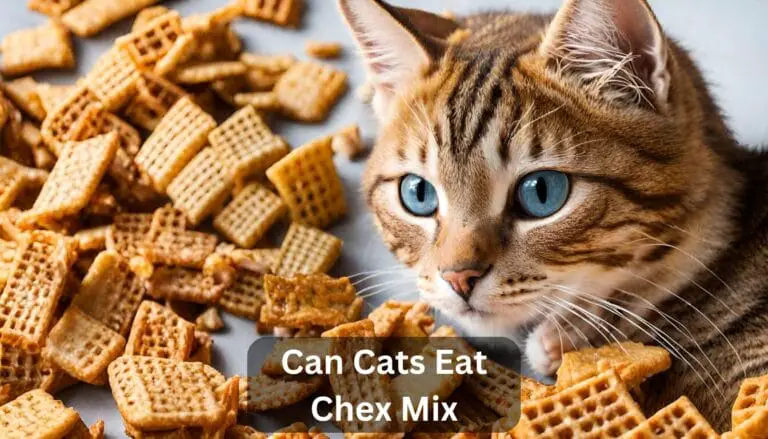
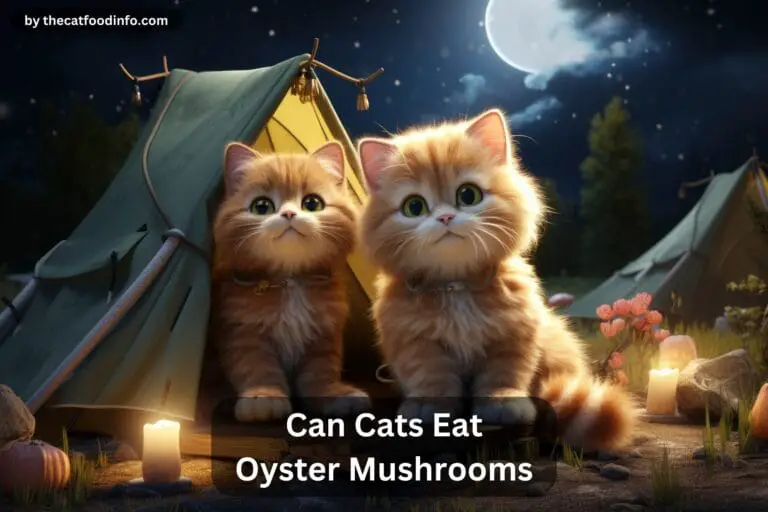
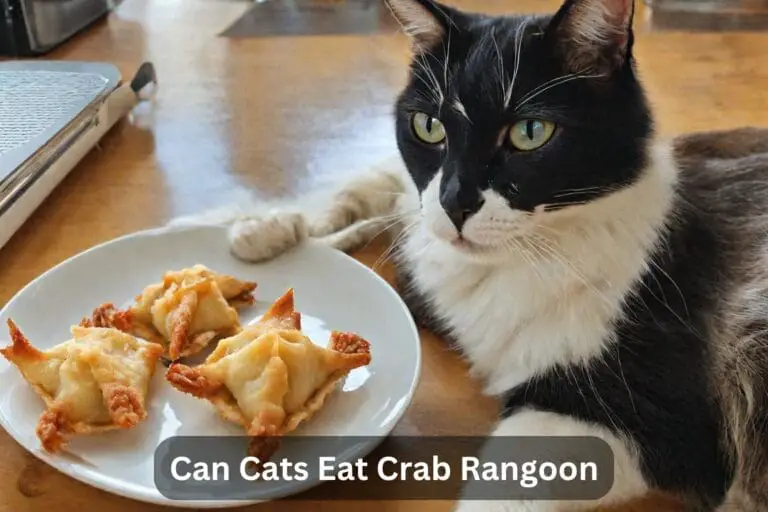
2 Comments